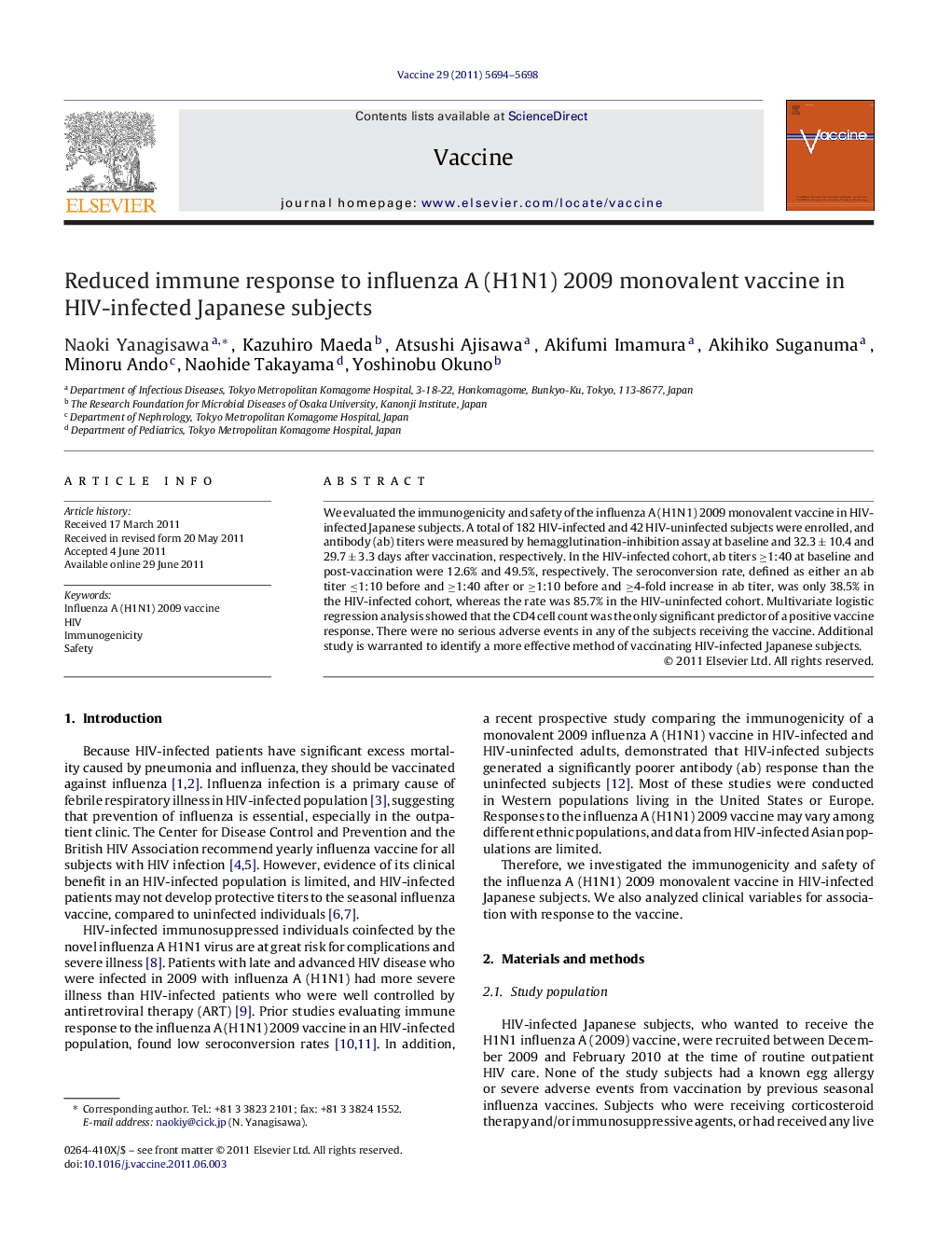| کد مقاله | کد نشریه | سال انتشار | مقاله انگلیسی | نسخه تمام متن |
|---|---|---|---|---|
| 2403265 | 1102891 | 2011 | 5 صفحه PDF | دانلود رایگان |

We evaluated the immunogenicity and safety of the influenza A (H1N1) 2009 monovalent vaccine in HIV-infected Japanese subjects. A total of 182 HIV-infected and 42 HIV-uninfected subjects were enrolled, and antibody (ab) titers were measured by hemagglutination-inhibition assay at baseline and 32.3 ± 10.4 and 29.7 ± 3.3 days after vaccination, respectively. In the HIV-infected cohort, ab titers ≥1:40 at baseline and post-vaccination were 12.6% and 49.5%, respectively. The seroconversion rate, defined as either an ab titer ≤1:10 before and ≥1:40 after or ≥1:10 before and ≥4-fold increase in ab titer, was only 38.5% in the HIV-infected cohort, whereas the rate was 85.7% in the HIV-uninfected cohort. Multivariate logistic regression analysis showed that the CD4 cell count was the only significant predictor of a positive vaccine response. There were no serious adverse events in any of the subjects receiving the vaccine. Additional study is warranted to identify a more effective method of vaccinating HIV-infected Japanese subjects.
► Immunogenicity of influenza A (H1N1) 2009 monovalent vaccine was evaluated.
► Seroconversion rate was 38.5% in HIV-infected Japanese subjects.
► No serious adverse was observed.
► CD4 cell count was a significant predictor of a positive vaccine response.
► A more effective method of vaccination is warranted.
Journal: Vaccine - Volume 29, Issue 34, 5 August 2011, Pages 5694–5698